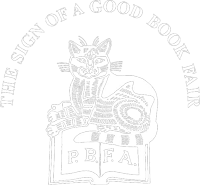
Sole UK printing
Hughes, Ted ~ Recklings : Signed by Ted Hughes
Sole UK printing : Turret Books, London: 1966
8vo., textured grey cloth, lettered in gilt to backstrip; yellow endpapers; together in the original pale grey dustwrapper, printed with titles in gold; The BOOK with one tiny spot to the fore-edge, else near fine in near-fine WRAPPER (some very faint patches of fading). The wrapper is protected in a removable Brodart archival cover. First, limited edition and sole UK printing. Number '117' of only 150 numbered copies issued. Signed by Ted Hughes to the limitation page. Hughes’ third collection of poetry, and an exceptionally clean example of this collection of 32 poems. In such a limited print run, the full body of work was not available to wide readership until 'Collected Poems' (published 2003), although some of them appeared in 'New Selected Poems 1957-1994'. The lack of critical response to the publication was attributed to the apparent devalued status the poet afforded it, with the title literally referring to the weakest of a litter, runts, or those least able to survive. In a letter to Janos Csokits dated 21 April 1967, Hughes had written that "‘Recklings’, the thin grey book, is a collection of bits & pieces which didn’t seem to me to fit into WODWO – not good enough or simply irrelevant." A month later he wrote to Daniel Huws "Here is RECKLINGS; pig’s litter, and a preposterous pretentiorisation of better days. RECKLINGS is what I threw out of the nest the better to fatten / my great cuckoo, WODWO, which will take wing in May.” The subjects of the verses vary hugely, and include the countryside and its various flora and fauna, fishing, the First World War, history, education, life, death, and everything in between. The tone of the overall collection, however, is tinged with a dark and sombre energy, most likely due to the fact that it was the first to be published in the aftermath of Sylvia Plath’s death. “If I stop my heart and hold my breath”, he writes in ‘Memory’, The needle will thread itself. Daring the no-man quiet of my non-being…”. ‘Bawdry Embraced’, the final poem to appear, also celebrates his early relationship with Plath, and was written as early as February 1956: “He questioned none: ‘It is enough that she is and I am’ ”. Other poems included here, such as ‘Unknown Soldier’, ‘Flanders’, and ‘A Colonial’, draw on his father’s own personal experiences of the horrors of war. William Henry Hughes had enlisted with the Lancashire Fusiliers and fought at Ypres, and the stories of Flanders fields filled Hughes' childhood imagination, with Hughes later claiming that the stories he heard during the first six years of his life “shaped everything." A rare work, particularly so in the wrapper.
BINDING: Hardcover
CONDITION: Near Fine
JACKET: Near Fine
£850



